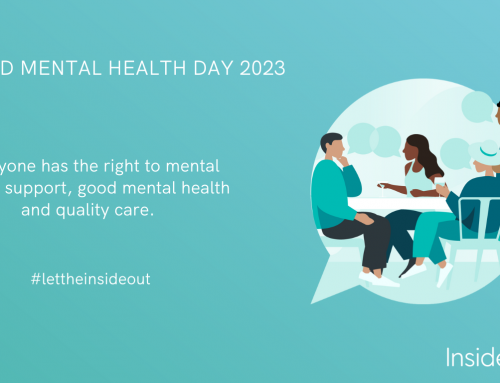Boundaries can be described as how emotionally close you let people get to you. They are also where you draw the line within a relationship. They say how much you are willing to give or take before requiring that things change, or deciding to call it quits.
If we don’t set sexual boundaries and stick to them, this has consequences for us. The most obvious damage may be physical, but there are also emotional downsides too. Blurred lines could start where partners have a lack of mutual understanding around consent. We are all familiar with the “no means no” mantra and most people welcome the widening of dialogue around power and coercive control through movements like #MeToo.
Having unclear or non-existent safe zones for all of our sexual interactions can undermine our self-esteem, but at worst lead to very serious traumatic impact. When thinking about getting our carnal needs met we could start by considering that anything other than an enthusiastic ‘Yes!’ could actually mean ‘I’d rather not!’. This matters for all of our sexual interactions, however transient, including one-night stands.
Long-term relationships present more opportunities for unspoken pressures to build up in our intimate interactions. There might be a mismatch in a couple’s libido where one partner wants to engage in sexual activities more frequently than the other. Maybe your comfort zone around what sexual behaviours you have a preference for are wildly different to the ones your partner expresses an interest in trying.
Boundary management around sex can get hindered by how assertive you are, how well you communicate, and how much you value yourself and your relationship. Some people may feel that to be loved, they must put out even when it isn’t their desire, or that if their partner is not engaging in sex, they must be losing interest. When these things aren’t spoken about on a regular basis and love languages aren’t established, distance can grow in relationships.
The vicious cycle of low sex drive, poor communication and bad emotional health is well documented. Research shows that a loss of desire in relationships is most commonly linked to chronic unresolved conflict and frequent arguments, lack of open, honest and clear discussions, difficulty trusting each other, and physical sexual problems. The most severe emotional knock-on effect of this can develop into anxiety or depression. (1)
A survey of Relate’s psycho-sexual therapy clients showed in females the most common problem was lack of desire, followed by vaginismus. For 1/3 men, the most common issues were erectile dysfunction, with 50% of the remaining cases split between loss of libido and multiple sexual issues. When both partners agreed on the problem, the most common finding was a shared loss of sexual desire. (2)
Disconnect and isolation from your loved one can cause anxious and panicky thoughts, which can be incredibly debilitating, and definitely a real passion killer. So, get to know yourself, and learn ways of being open and articulate about your wants and needs, then practice talking to your partner in both frank and even fun ways.
We review and give feedback on almost everything else in our lives, so why should sex be any different when it’s something people all around the globe can relate on. It’s a universal language, so don’t be afraid to speak up. One great way of practising doing this is to make menus of what’s on offer and put in an order via your phone. Give it a try!
—–
Author: Dr Becky Lunson Southall, Content Contributor for InsideOut
References:
- https://www.nhs.uk/conditions/loss-of-libido/
- Jane Roy PhD, BSc (2004) A survey of Relate psychosexual therapy clients, January to March 2002, Sexual and Relationship Therapy, 19:2, 155-166, DOI: https://doi.org/10.1080/14681990410001691370






